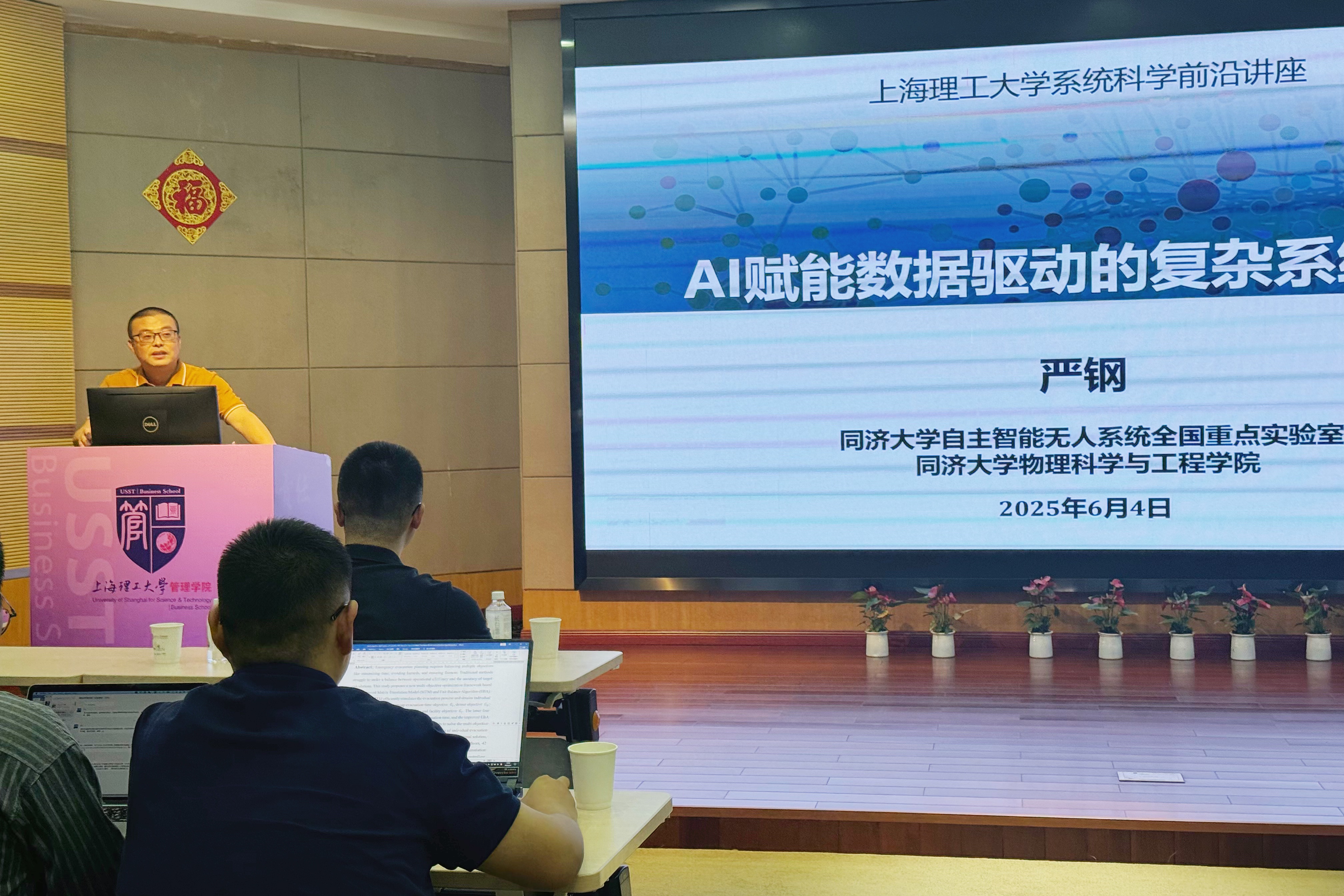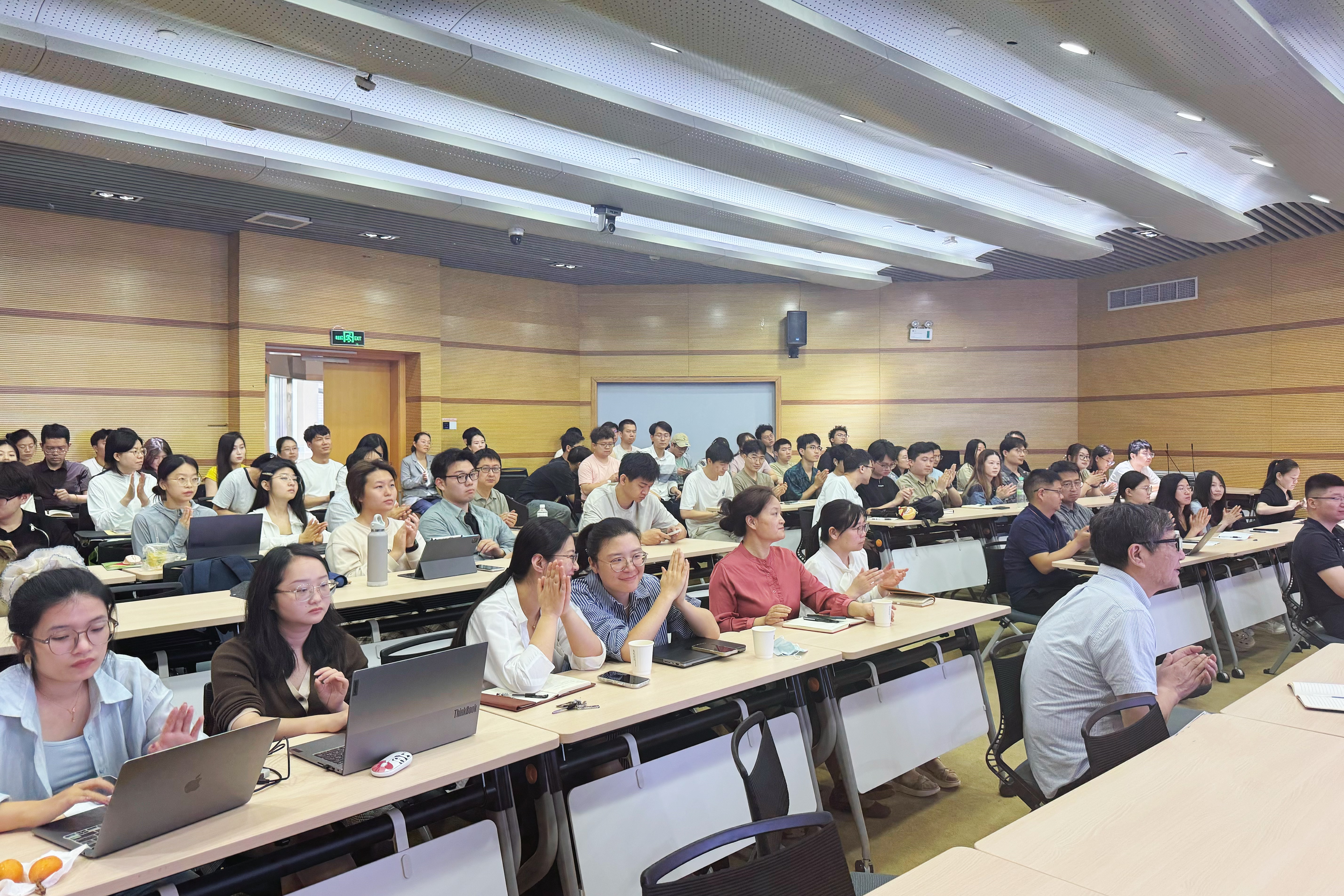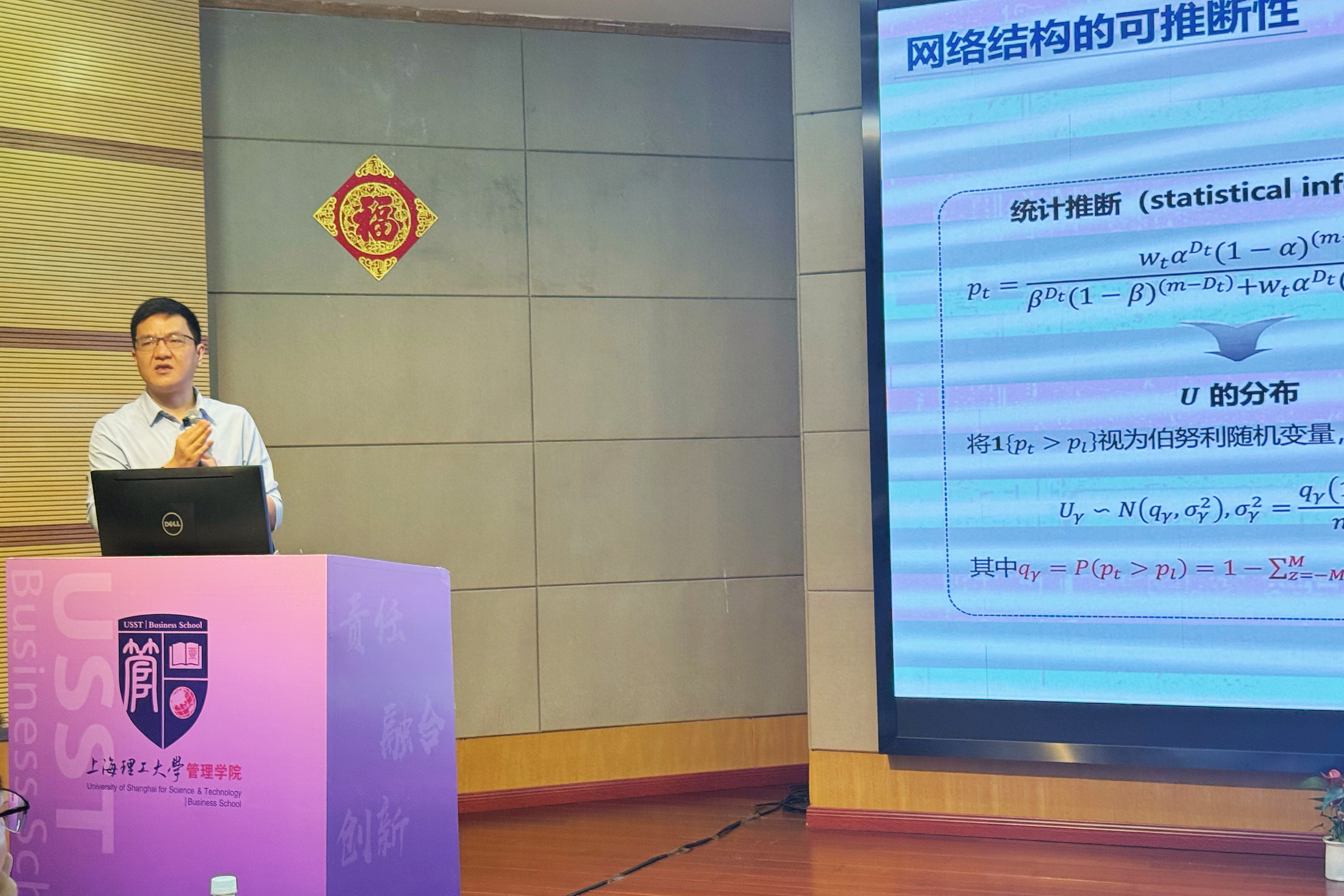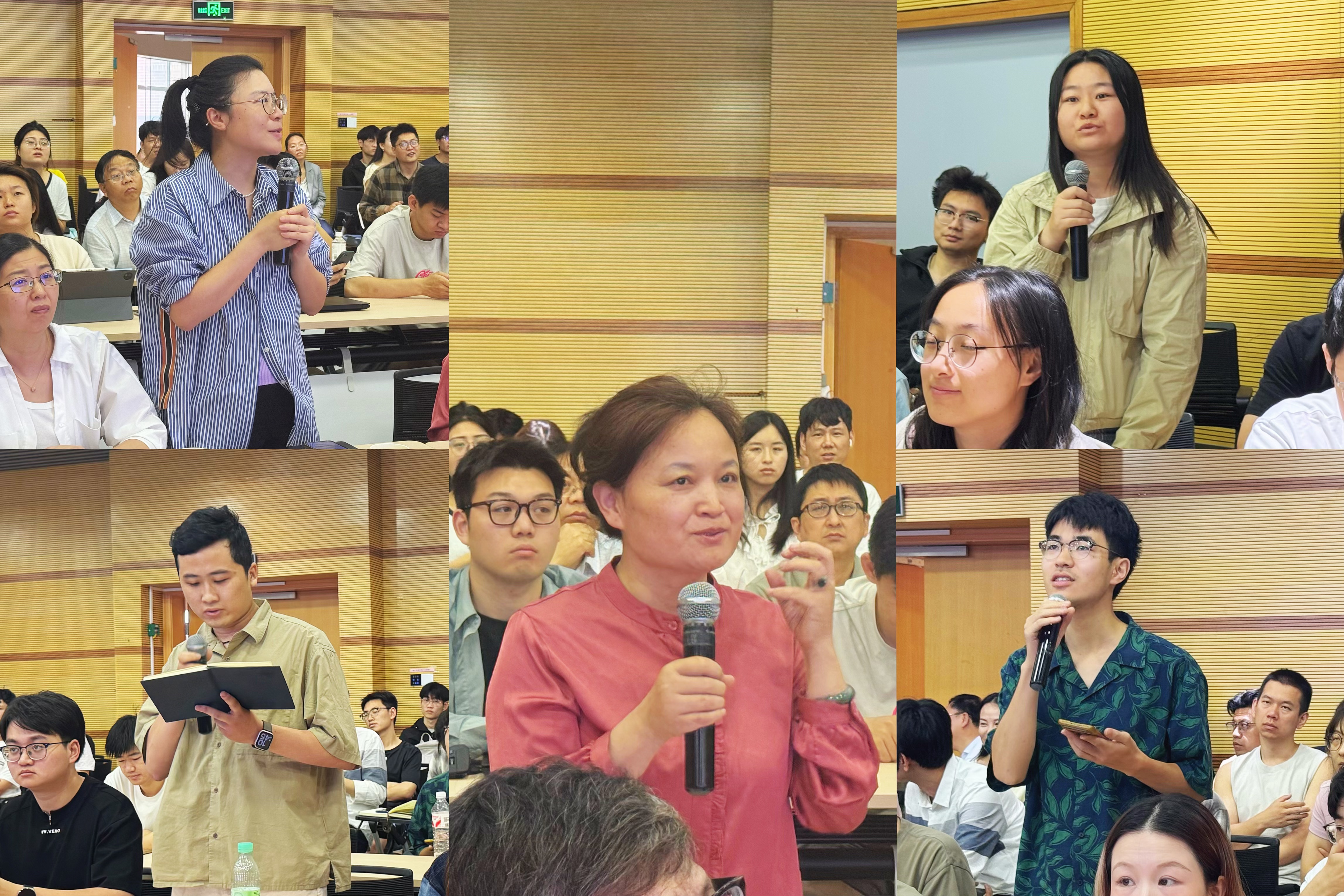On June 4, the Department of Systems Science hosted a special lecture on systems science. Professor Yan Gang, a tenured professor and doctoral supervisor from the School of Physical Science and Engineering and the Shanghai Research Institute for Intelligent Autonomous Systems at Tongji University, was invited to delivered a lecture entitled AI-Empowered Data-Driven Research on Complex System . The lecture was presided over by Professor Gu Changgui, Director of the Department of Systems Science, and attended by faculty members and students of the School.


During the lecture, Professor Yan Gang focused on three core directions in complex systems, systematically explaining how artificial intelligence plays a critical role in data modeling, network inversion, and system prediction. He introduced methods for using AI to infer dynamic equations of complex systems. For instance, in a study on bird flocking behavior, his team successfully derived interaction dynamics equations among individuals by analyzing trajectory data from 70 birds. He also highlighted the application of their model in African vegetation cover research, demonstrating its capability to predict critical transitions in ecosystems, a project that garnered attention from international media. Professor Yan emphasized his team's goal of integrating multimodal data from ecology, neuroscience, and social networks to develop an automated platform that directly generates system analysis reports from input data.

In the Q&A session, participants raised questions on network reconstruction, model interpretability, reliability of prediction time windows, and applications in social sciences. Professor Yan provided detailed responses.

Concluding the event, Professor Gu Changgui remarked that Professor Yan's work bridges data science and complex systems, offering powerful new tools—such as AI-driven network reconstruction, equation inversion, and critical prediction methods—for interdisciplinary research in fields like brain science, ecology, and social sciences. He expressed optimism that the lecture would inspire further exploration among attendees.
Translated by Wei Xin
Reviewed by Liu Weiwei


